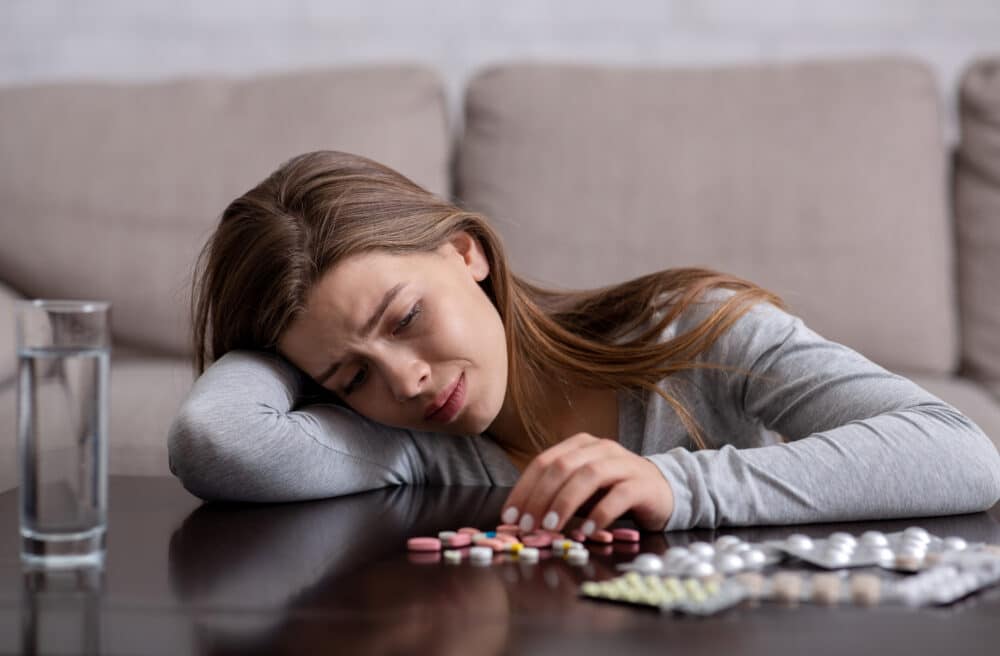Introduction to Drug Addiction and Treatment
Drug addiction is a serious condition where a person cannot stop using substances even though it causes harm to their body, mind, and life. When someone is addicted, they are not able to control their drug use and they may continue using the drug despite the damage it causes. Addiction can lead to a range of problems that affect not just the person with the addiction but also their family and friends. It can cause health problems, money worries, trouble with the law, and can damage relationships.
Treatment for drug addiction is important because it helps people to stop using drugs and rebuild their lives. There are many types of treatment which can help people depending on their needs. The goal of treatment is to help people live a drug-free life and to improve their health and happiness. Treatment can also help to heal the damage that addiction has caused to their family and friends.
Understanding Different Treatment Options
When it comes to treating drug addiction, there are many options available and choosing the right one is crucial for recovery. Here are some of the common types of treatment programs:
- Inpatient Treatment: This is where a person stays at a treatment center for a period. It offers a safe environment away from the triggers of addiction.
- Outpatient Treatment: Here, a person visits a treatment center regularly but does not stay overnight. It allows them to continue with their daily life.
- Counseling: This involves talking to a therapist who can help understand the reasons for addiction and how to overcome it.
Each person’s journey is different, and their treatment plan should be too. This is why personalized treatment plans are vital. They take into account the person’s drug use history, their health, and their life circumstances. We at ADAPT Programs design our treatments to fit each person’s unique needs.
The Role of Detox in Addiction Treatment
Detox is often the first step in treating drug addiction. It is the process of letting the body remove the drugs in it. This can be a tough time because as the drugs leave the body, a person may have withdrawal symptoms. These can be very uncomfortable and sometimes dangerous. That’s why it is important for detox to happen under medical supervision. This means doctors and nurses watch over the person and can help them through withdrawal.
Detox is not a cure for addiction, but it is a crucial first step. After detox, the person is ready to start the main part of their treatment, which will help them to stay drug-free in the long term.
Behavioral Therapy and Counseling
Behavioral therapy and counseling are key parts of treatment for drug addiction. These therapies can help people understand why they became addicted to drugs and how to live without them. Here are some common types of therapy used in addiction treatment:
- Cognitive-Behavioral Therapy (CBT): This helps people recognize and change thinking patterns that lead to drug use.
- Group Therapy: This involves treating a group of people together. It helps to build support networks and learn from the experiences of others.
Therapy can help people build new habits, learn to deal with stress, and fix problems in their lives. It can also help them to mend their relationships with family and friends.

Medication-Assisted Treatment (MAT)
MAT is a way to treat addiction that includes medication and therapy. It is often used for opioid addiction but can also be used for other types of addiction. Medication can help reduce cravings and withdrawal symptoms, making it easier to focus on therapy and recovery.
Types of medications used in MAT include:
- Methadone: Reduces opioid cravings and withdrawal and blunts or blocks the effects of opioids.
- Buprenorphine: Also reduces cravings and withdrawal. It can be prescribed by certified doctors.
- Naltrexone: Blocks the effects of opioids and alcohol.
MAT can be an effective part of a comprehensive treatment plan, helping people to recover and lead a drug-free life.
Support Groups and Peer Support
Support groups play a vital role in helping individuals maintain long-term sobriety. These groups provide a sense of community and a safe space where people can share their experiences, challenges, and successes. Being part of a group with people who understand the struggle of addiction can make a big difference in recovery. It offers emotional support that is crucial during tough times and can help a person stay committed to sobriety
Participation in support groups like Narcotics Anonymous (NA) or SMART Recovery is highly encouraged because they:
- Provide accountability and peer support.
- Offer shared learning experiences and coping strategies.
- Staying connected with supportive friends, family, and peers who encourage sobriety.
The Importance of Aftercare and Relapse Prevention
Aftercare is an essential part of the recovery process and includes ongoing support after initial treatment. A strong aftercare program can significantly reduce the chance of relapse and help individuals continue to live a drug-free life. Effective aftercare can involve continued therapy, regular check-ins with a counselor, and continued participation in support groups.
Strategies for preventing relapse include:
- Identifying and managing triggers that might lead to drug use.
- Continuing to build and practice coping skills learned in treatment.
- Help reduce the feeling of isolation by connecting with others who are facing similar challenges.
Choosing the Right Treatment Program
Choosing the right treatment program is a crucial step towards recovery and depends on several factors, including:
- The type of substance being misused.
- The individual’s personal history with addiction.
- The person’s unique circumstances, like work, family, and health needs.
- The goals they have for their recovery journey.
At ADAPT Programs, we understand these needs and offer a comprehensive range of treatment options tailored to help each individual on their path to recovery. Our treatment programs are designed to meet our clients where they are and support them every step of the way.

Conclusion: Taking the First Step Towards Recovery
Recovery from drug addiction is a journey that begins with a single step. Understanding the different types of drug addiction treatment, the vital role of support groups, the necessity of aftercare, and the importance of choosing the right treatment program are all key to this process. Recovery is not just about stopping drug use; it’s about building a new, fulfilling life.
We at ADAPT Programs are here to support individuals as they take that first step towards recovery. Our comprehensive treatment options, supportive community, and dedicated team offer the care and guidance needed to overcome addiction. Remember, taking the first step is a sign of strength, and we are here to walk alongside you on your journey to a healthier life.



